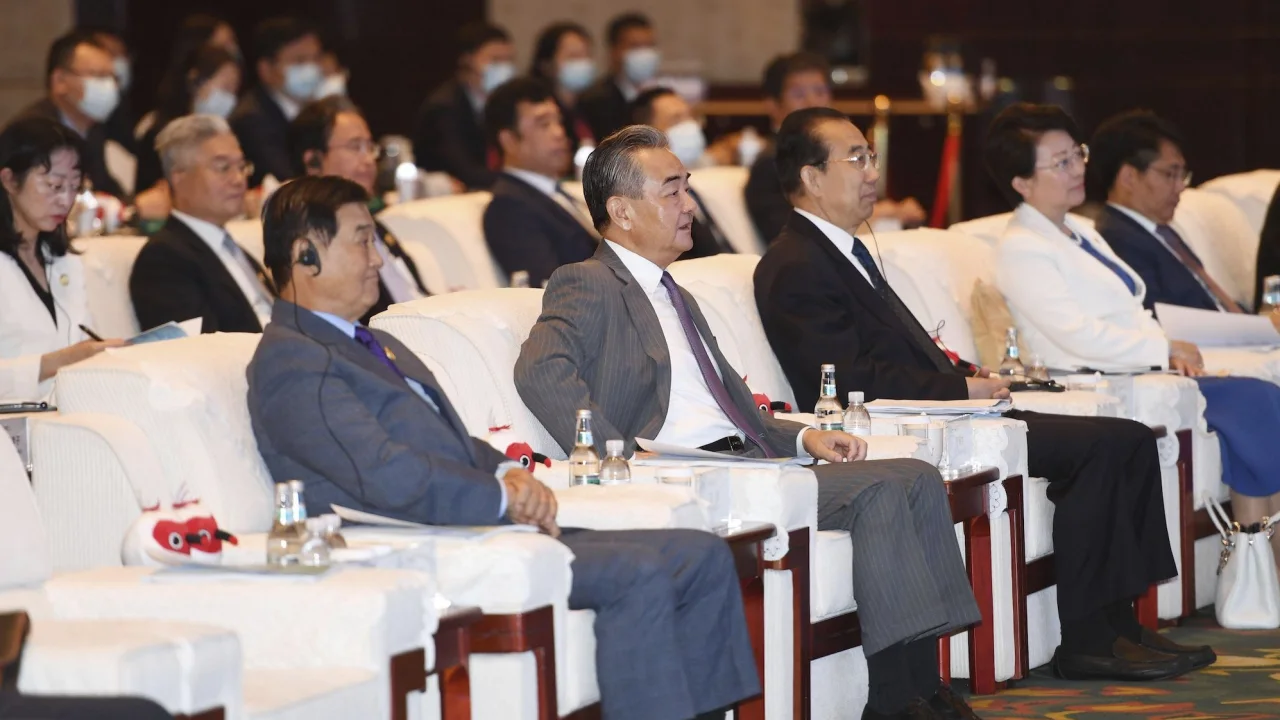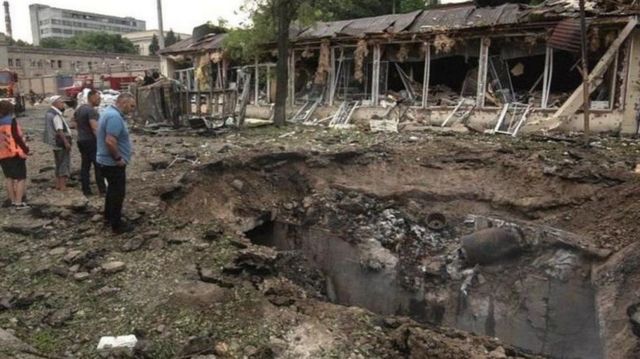
‘You can never become a Westerner:’ China’s top diplomat urges Japan and South Korea to align with Beijing and ‘revitalize Asia’
Nectar Gan, CNN
China’s top diplomat has urged Japan and South Korea to foster a sense of “strategic autonomy” from the West and cooperate with Beijing to “revitalize Asia,” amid rising tensions between China and the two neighboring American allies.
The comments by Wang Yi on Monday come as Japan and South Korea forge closer relations with the United States – and mend ties with each other – driven by common concerns about Beijing’s growing influence and assertiveness in the region.
In a video shared by Chinese state media, Wang told Japanese and South Korean guests attending a trilateral forum in the eastern coastal city of Qingdao that most Americans and Europeans can’t tell China, Japan and South Korea apart.
“No matter how blonde you dye your hair, how sharp you shape your nose, you can never become a European or American, you can never become a Westerner,” Wang said. “We must know where our roots lie.”
Wang called for Japan and South Korea to work together with China to “prosper together, revitalize East Asia, revitalize Asia and benefit the world.”
Wang was speaking on the sidelines of the International Forum for Trilateral Cooperation, an annual event organized by Beijing, Tokyo and Seoul since 2011.
To experts on the region, Wang’s racialized comments harken back to the sentiment of racial pan-East Asian solidarity against the West in the early 20th century.
“Imperial Japan really leaned into that as it expanded, eventually declaring a ‘Greater East Asia Co-Prosperity Sphere’, with conquest styled as win-win racial liberation,” said Joel Atkinson, a professor specializing in Northeast Asian international politics at Hankuk University of Foreign Studies in Seoul.
“The reality, of course, was Japanese ultra-nationalists destroyed all that good will in China and Korea in their attempt to replace Western influence with a new Japanese hegemony.”
Atkinson said Japan and South Korea are likely to find Wang’s pitch “unpersuasive” given a long list of assertive actions Beijing has taken toward both countries over the years.
“Unsurprisingly, China’s Northeast Asian neighbors are now resisting Beijing’s attempt to change the regional order in its favor,” he said.
“Both have made it clear they feel safer with the US around, and have no interest in abandoning their alliances to instead rely on Beijing’s goodwill.”
‘Strategic autonomy’
On Monday, Wang also addressed the forum’s opening ceremony in an effort to “send a clear signal” of the potential for the three neighbors’ regrouping, the Chinese Foreign Ministry said in a statement.
In his opening remarks, Wang called for Japan and South Korea to “promote inclusive Asian values, foster a sense of strategic autonomy, maintain regional unity and stability, resist the return of the Cold War mentality and be free of the coercion of bullying and hegemony,” the statement said.
“The fate of the region is firmly in our own hands,” Wang was quoted as saying.
Xi Jinping, China’s most powerful leader in decades, has pushed to expand Beijing’s role on the world stage with an increasingly assertive foreign policy that has fueled tensions with many of its neighbors and the West.
In recent years, the Biden administration has stepped up efforts to unite allies and like-minded partners to counter China’s rising influence in the Pacific, including with South Korea and Japan, two of its most important allies in Asia.
Their trilateral ties are furthered strengthened by security concerns about North Korea. The three countries have conducted joint military drills this year to boost their coordination against increasing North Korean missile threats.
They’ve also issued joint statements on tensions in the Taiwan Strait – an area both Tokyo and Seoul say is vital to their respective security – which drew the ire of Beijing.
In a thinly veiled swipe at the US, Wang on Monday accused “certain major powers outside the region” of “exaggerating ideological differences” to sow confrontation and division, in order to seek geopolitical gains, according to the Chinese Foreign Ministry.
“If this trend is allowed to develop, it will not only seriously interfere with the smooth progress of trilateral cooperation, but also aggravate tension and confrontation in the region,” Wang added.
South Korean Foreign Minister Park Jin and Japanese Foreign Minister Yoshimasa Hayashi addressed the event via video link, according to the Chinese Foreign Ministry.


















